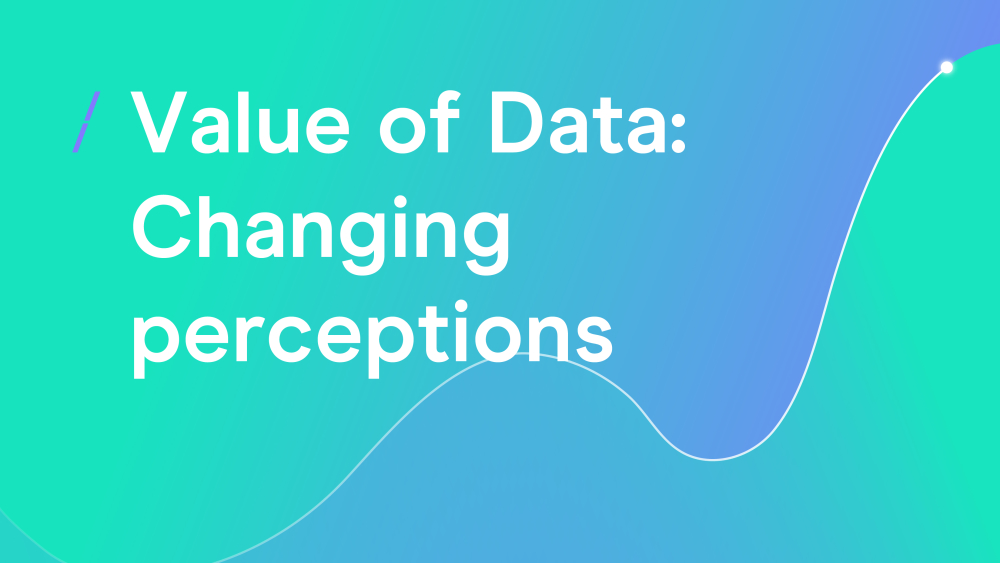Value of Data: Changing perceptions
18 May 2019

An initiative born in Scotland, the DMA joins forces with partners and advocates as we seek to reshape the understanding of the true worth of information. Firas Khnaisser, head of decisioning at Standard Life and Chairman of DMA Scotland, takes on the challenge of changing perceptions of data - and offers more insight into the Value of data project.
If data is now widely understood to be valuable, then why is it still so difficult to attach a value to it?
It's a question that CTOs, CDOs, CMOs, accountants, lawyers, academics and many others have pondered hard in recent years, and one DMA Scotland is now exploring in depth.
The arrival of GDPR, and episodes like Cambridge Analytica and Facebook, has focussed the eyes of business leaders, consumer champions and the media alike on how data is collected, processed and used. But there's still a missing piece: what gives data its value, the data itself or how you use it? And what would be the advantage of assigning value to it?
DMA Scotland recently collaborated with The Data Lab at the DataFest18 conference in Edinburgh to test the water around the idea of valuing data. There was a healthy debate and a groundswell of opinion around how data should be valued, and the need for it have its rightful place on the balance sheet, along with other valuation methods. Overall, the day gave DMA Scotland reassurance to delve deeper into this topic.
Current accounting valuation techniques remain stuck in an industrial age that dealt primarily with products. If we're living in the information age, why are there no standards to evaluating information? The digital and information revolution we're all part of surely demands more.
Take brand value as another example of an intangible asset much like data. Since the 1980s, several high-profile annual surveys have sought to evaluate the financial muscle of the world's leading brands. Why shouldn't the same measurement be ascribed to data as an asset, rather than it being viewed as a nebulous mass of customer information?
We also looked at why this is a challenge that Scotland has every right to face head-on. In recent years, the country has become a hub of data expertise, fintech firms and start-ups thanks to government investment, and close collaboration between private, public and educational institutions. The DMA wants to lead this debate from Scotland and continue the conversation across the UK and the world.
The reason the DMA exists is to empower brands to responsibly create more value for and from their customers. Data is central to this value exchange. Understanding the value of data will empower customers and brands alike to create more meaningful interactions.
These themes and others will be explored in future articles and at forthcoming 'Value of Data' events. But what does the DMA want you to do?
At DataFest, we lit the touchpaper on the campaign to have industry stakeholders discuss and declare the value that data provides, and develop a framework for doing so. We will be running a series of events throughout the year around various aspects of valuing data. Our next focus will be on the 'Value(s) of Data', when we'll explore ethics and data, including our individual and collective responsibilities. We believe that without responsibility we can never create value that impacts individuals, businesses and society at large.
We will work closely with you, our partners, members, industry, academia, media and government, to deepen our understanding of the value of data, and how it helps you obtain and deliver value from the interactions you have. We'd be delighted to hear your views, whichever side of the debate you're on.
The DMA's vision is for marketing to be spoken of in terms of its excellence in data-driven communications. We hope that by bringing together voices from across various industries and areas of expertise, data's value will occupy its rightful place, within data, marketing and finance teams across agencies, data and technology suppliers, academia, trade bodies, as well as in homes up and down the country.
If you're interested in taking part in this discussion, please email Lisa at Lisa.McLauchlan@dma.org.uk.
Firas Khnaisser, head of decisioning at Standard Life
To read an introduction to the Value of Data project, click here.
Please login to comment.
Comments